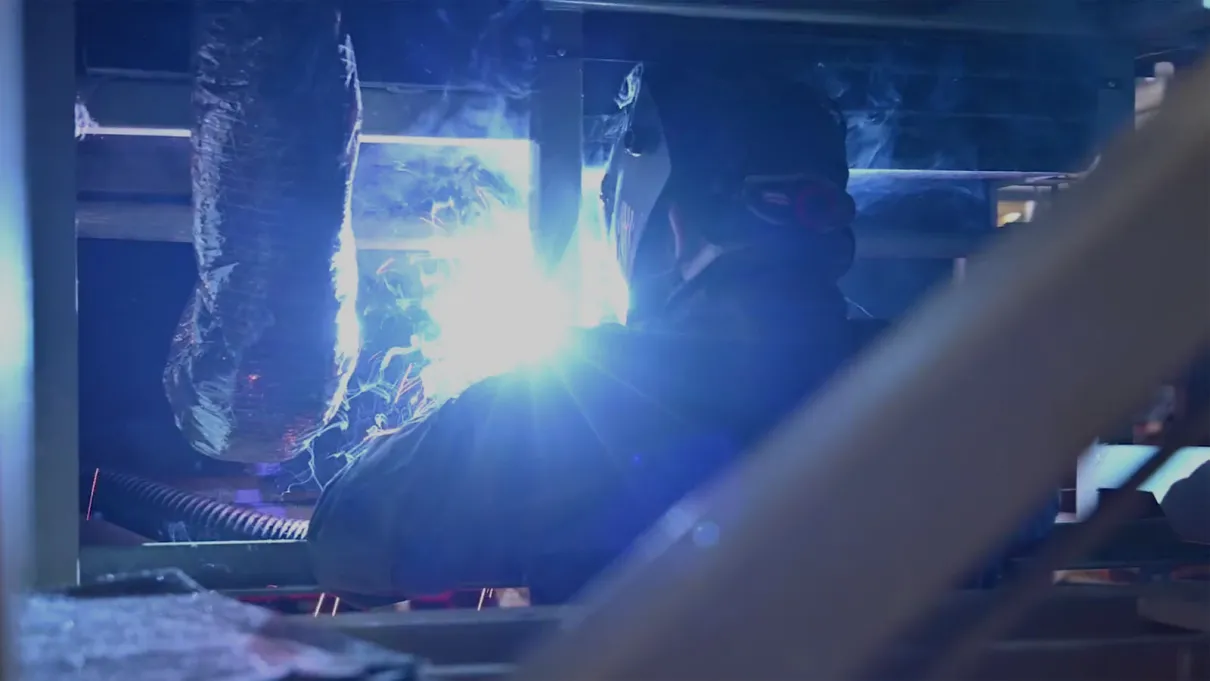
Bionic Locos: How Wabtec Proved the Doubters Wrong and Launched a Billion-Dollar+, Sustainability-Boosting, ‘Modernization’ Business
Wabtec’s 2,000th ‘MOD’ rolls off the manufacturing line.
Introduction
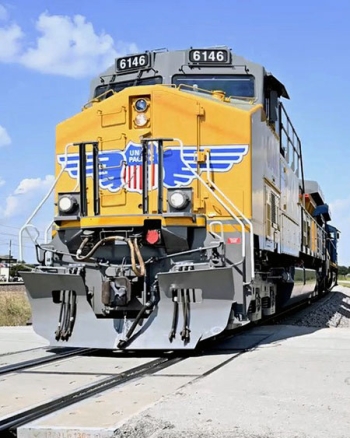
In June 2024, Wabtec achieved an industry-first – delivering its 2,000th modernized locomotive, a.k.a., “MOD,” to market. Only two years prior, Wabtec had announced a historic billion-dollar contract with Union Pacific to modernize 600 of the Class I carrier’s locomotives, the largest such deal in rail history.
Remarkably, less than a decade earlier, Wabtec’s North American “modernization” business did not even exist. Its creation hinged on some big bets that might have made even Vegas oddsmakers blush. The fact that it flourished underscores Wabtec’s unrivaled leadership in locomotive innovation.
A challenging landscape
Those bets were born out of major changes in the railroad industry. First, 2015 marked the end of the transitional “phase in” period of Tier 4 emissions standards. From that point forward, new locomotives would need to comply with much stricter environmental standards, namely a 90% reduction in particulate matter (PM) and nitrogen oxides (NOx) over older locomotive models.
Around the same time, many Class I Railroads began embracing Precision Scheduled Railroading (PSR), a network optimization concept favoring Lean, agile, just-in-time delivery and an overall ethos of dramatically improving productivity.
Although Wabtec rose to the challenge of designing and launching a new flagship, high-performance, Tier 4 locomotive (the Evolution Series), the combination of Class I car volumes and the PSR initiative drove a decline in demand for the purchase of new locomotives. And the timing could not have been worse. Wabtec had recently opened a state-of-the-art Lean manufacturing facility for new locomotive builds in Fort Worth, TX to supplement its Erie, PA production capabilities.
“I won’t sugarcoat it; demand for new locomotives dried up, and we faced some tough decisions, including the prospect of having to right-size our manufacturing footprint,” says Robert (Bob) Bremmer, Wabtec’s Group Vice President of Product Management.
Necessity is the mother of invention
But serial innovators don’t give up easily. After crunching the numbers and brainstorming ideas, a small, handpicked team of Wabtec problem-solvers united around a solution: if we can’t sell new locomotives, let’s modernize our old ones.
Not everyone at Wabtec loved the idea, but the newly activated “MODS Squad” wouldn’t be denied. Instead, it got busy. While some on the team began to scope out what exactly MODS would look like and how to build them, others took the concept on the road to test it with customers, selling not just the idea of modernized locomotives, but also the outcomes of greater availability and reliability, aligned with the customer’s PSR initiative.
And while no one threw them out, no one gave them an unequivocal “yes.”
Big bet, part II
So, with few new locomotive orders coming in and no MODS orders placed, the MODS Squad did what any (ir)rational group of believers would do: it began a modernization for one of Wabtec’s biggest Class I Rail customers – without an order.
Wabtec put skin in the game – and it worked! The customer appreciated the MODS Squad’s vision and moxie, as well as the idea of prolonging locomotive life while boosting performance. It took a leap of faith and placed a first order.
Now, Wabtec just had to fulfill it.
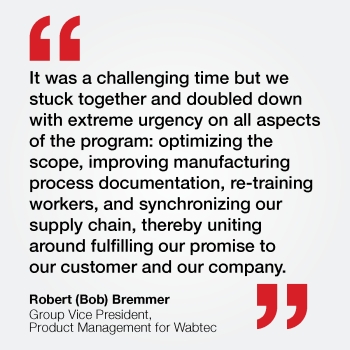
While Wabtec’s ultimate success in delivering its first MODS to market highlights a number of product innovations, including DC to AC propulsion system conversion, a high-tractive-effort package, digital technologies, and advanced control systems, it also points to process reinvention: the ability to create a MODS line in a Lean factory purpose-built for new locomotive productions.
That process, however, was not without its hiccups. In fact, Wabtec fell short of the original performance commitments for its first MODS customer even as key influencers at that railroad had staked their personal reputations on it.
“It was a challenging time,” remembers Bremmer, “but we stuck together and doubled down with extreme urgency on all aspects of the program: optimizing the scope, improving manufacturing process documentation, re-training workers, and synchronizing our supply chain, thereby uniting around fulfilling our promise to our customer and our company.” He added, “While we missed the initial commitments, we put our passion and professionalism together to ultimately exceed expectations, rewarding the customer’s trust and patience.”
Riding the rails for new orders
As this first MODS order rolled off the manufacturing line, other Class I railroads began to take notice and placed their initial orders. A modest success was in the works, but it was far from filling the factory. Wabtec needed larger orders and turned again to its initial MODS customer.
Unfortunately, the customer, which was deep into its PSR initiative, had no appetite for additional orders. Undeterred, Wabtec dug deeper into how the railroad was implementing PSR, riding the rails with the customer to see its operations firsthand.
That up-close and personal view led to transformative insights, key among them identifying an opportunity to improve and optimize dispatching. Wabtec AC technology, a central feature of the modernization process, had provided the railroad significantly more tractive power, but the full potential of that increase had not yet been reflected in how it dispatched its fleet.
Wabtec engineers saw an opportunity for improvement, ran simulations to optimize dispatching, took the findings to the customer, tested the concept on select trains, and proved their case, spurring a step-change in dispatching that advanced the railroad’s PSR work and the value the company and its customers derived from it.
The result? A new MODS order.
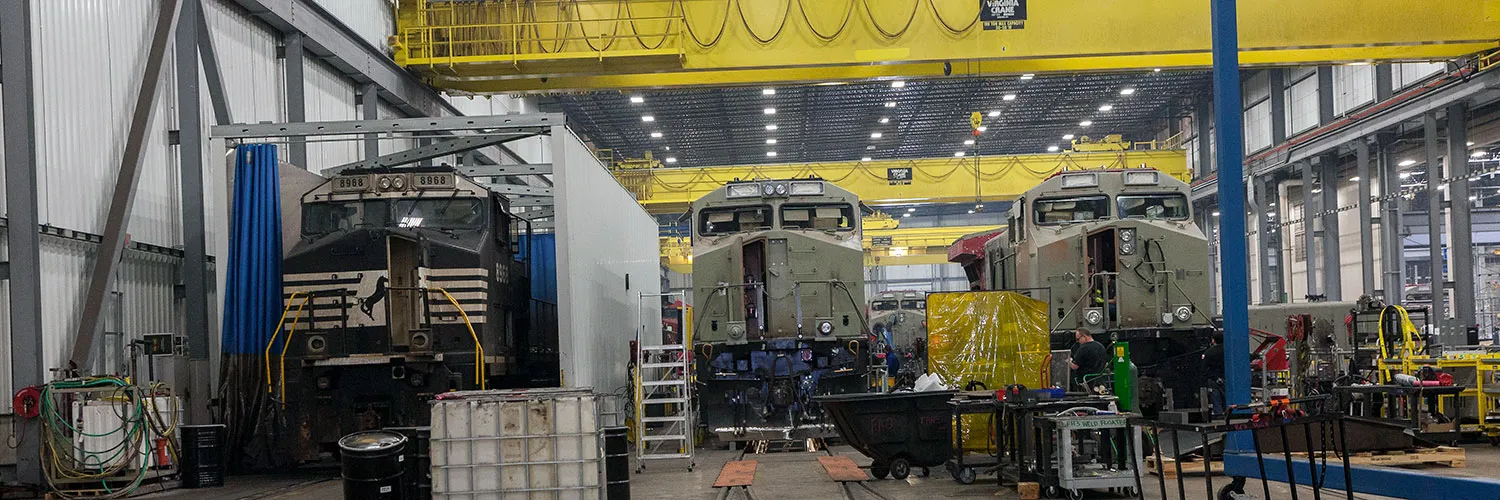
MODS and ESG: a new era in sustainability
With a second MODS order, the Wabtec team was not only filling more factory lines, it was also firming up a value proposition that resonated across Class I carriers: MODS not only prolonged the life of legacy locomotives by up to 20 years, they made them dramatically better, increasing reliability, availability, tractive effort, and dispatching.
Yet the Wabtec team had one more card to play – a true game changer. The MODS Squad knew modernizations could unlock additional fuel savings and carbon reductions, powering the carrier’s fleet in a more environmentally-friendly way.
Armed with this insight; an increasingly robust bundle of MODS that reduced emissions, fuel consumption, and waste; and a custom-built ESG calculator to justify the investment, Wabtec shared with the customer a vision for a modernized fleet at scale. This fleet would not only perform better, it would also require less fuel and reduce carbon emissions in the process.
MODS had fully arrived!
“The initial multi-year journey of our MODS program, from inception through the historic nine-figure order, had so many plot twists, tough moments, and lightning bolts of insight and inspiration,” says Bremmer. “Yet it’s ultimately a story of persistence, both from our customers, which saw in MODS a productive way forward during a period of belt tightening, and the team at Wabtec which rallied around them, and each other, to build something great, lasting, and incredibly valuable for customers, the company, and industry alike.”
Scaling up for a sustainable future: The next 1,000 MODS
Clearly something big was happening at Wabtec – and across the industry. Wabtec had proven the value proposition of MODS, and Class I carriers proved hungry for more. While it had taken Wabtec six years to modernize its first 1,000 locomotives, it produced the next 1,000 in less than three!
What had changed, of course, is that Wabtec had scaled its manufacturing operations in both Fort Worth, TX, and Erie, PA to meet increased demand. But that’s not all. Sustainability had emerged as a key market driver.
“Over the course of our first 1,000 MODS, we worked hard to show the market how incremental improvements made to our proven legacy locomotive platforms delivered superior performance and reliability results while extending longevity by 20 years,” reflects Bremer. “At the same time, it became very clear that the ethos of MODS, i.e., re-using 50 percent or more of the original locomotive, fit right in with the mindset of a rail industry actively embracing its environmental responsibilities.”
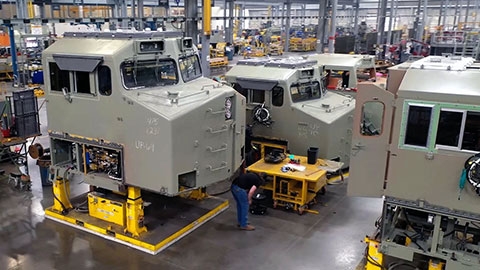
This embrace carried over to the science-based target initiatives of Class I railroads, which aimed to reduce carbon emissions, often by 30% or more, by 2030. And again, Wabtec’s MODS program was ready.
Just as its past modernization innovations had increased locomotive tractive effort and fuel efficiency, Wabtec’s next-generation of modernization anticipated a strategic, imminent shift – the one away from fossil fuels.
Today, Wabtec MODS can run on an array of biodiesel and renewable diesel options, as well as natural gas, and do so on a locomotive platform proven by years-on-tracks for reliability and performance. This means that when customers purchase Wabtec MODS that run on alternative fuels, they know the refurbished locomotive has been purpose-built for the job without sacrificing reliability and performance.
And near term, that “job” includes meeting carriers’ 2030 decarbonization targets. So, while Wabtec continues to lead the field in new Tier 4 emissions-reducing engines and hybrid electric locomotives, it is also lapping the competition in the delivery of cost-effective, carbon-reducing modernized locomotives.
“The modernized C44 is the result of a great partnership between Wabtec and Union Pacific Engineering teams to build and sustain a best-in-class locomotive modernization program,” said Jeremy Givens, Vice President – Mechanical, Union Pacific Railroad. “The teams worked together to identify aging components and maximize the newer platform, allowing us to improve locomotive efficiency and reduce emissions – a win for Union Pacific and, ultimately, our customers.”
Added Ryan Stege, Norfolk Southern’s Senior Director of Locomotive and Operations, “The MODS program has been instrumental in modernizing our Dash 9 locomotives. Norfolk Southern was a railroad that remained committed to using DC propulsion for a long time. We had 1,200 locomotives, around 20-25 years old. Our operations team saw the benefits of the EVO AC we purchased. Modernizing the diesel locomotive frame with a known engine and a reliable control system proved to breathe new life into our fleet. The modernizations offered better fuel efficiency and tractive effort per horsepower, surpassing some new units in track testing.”
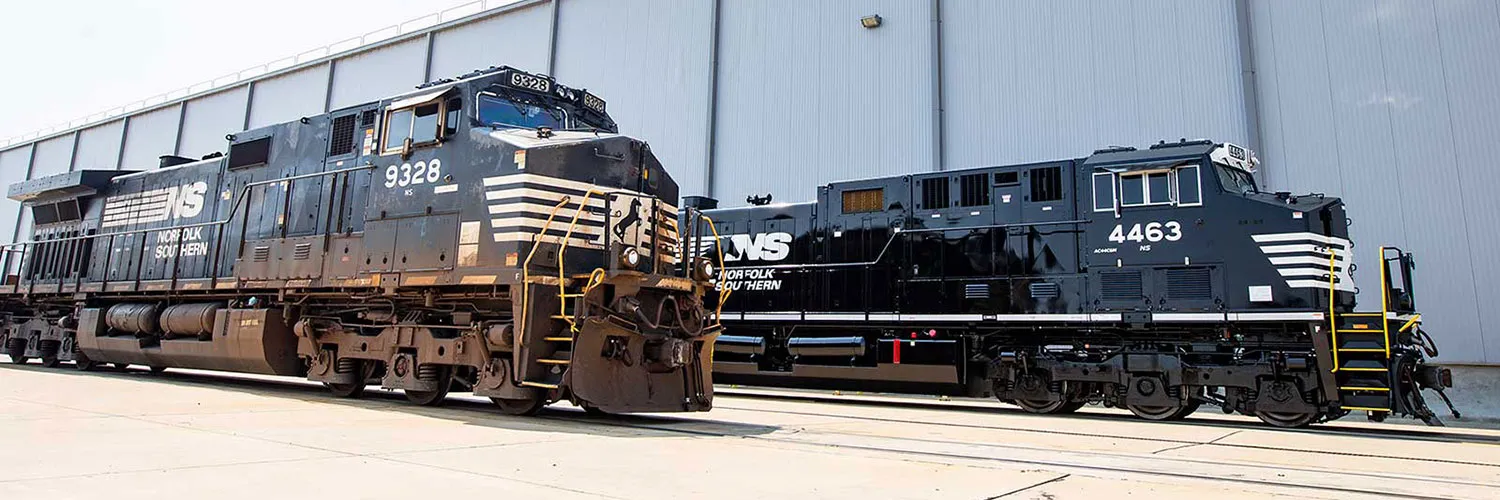
Future MODS
While MODS 1-2,000 are helping Class I carriers meet near-term sustainability targets, they, along with the next 2,000, are also primed to speed these railroads down the tracks to their ultimate net-zero goals. And for that, hydrogen is emerging as a game-changing fuel source.
“We’ve said it before, and we’ll say it again: Wabtec innovation never stops,” concludes Bremmer. “Alternative fuels are playing a big role in our customers’ near- and long-term decarbonization and, ultimately, net-zero plans. The flexibility of our MODS to adapt to new fuel innovations and preferences means these locomotives will continue to play an important part in our customers’ fleet operations.”
Whatever the eventual play, be it 100% biodiesel, hydrogen internal combustion engines (ICE), or hydrogen fuel cells, the safe money is on Wabtec to have a MODS program in place to enable and speed the transition.